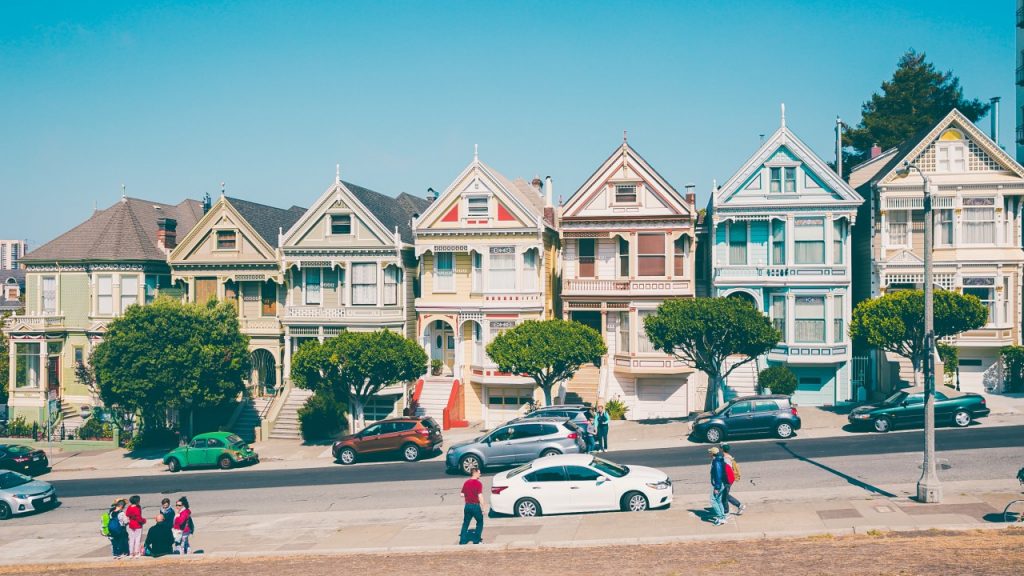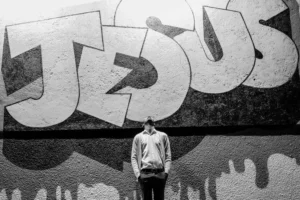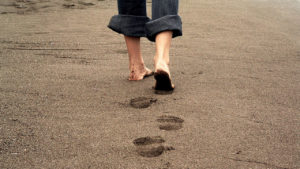My Wednesday meeting wasn’t exactly engaging. I pulled out my phone and scrolled through my Instagram feed. Among photos of coffee shops and dogs, one of my friends was Instagramming from a beach in the Caribbean. Suddenly I was even more discontent with my meeting.
We live in a culture that idolizes wanderlust, the strong desire to travel. Young people are told to experience all that life has to offer now, because you may not get the chance later. Our desire to travel where the grass is greener points our eyes toward the impressive and away from the ordinary. And yet, simultaneously, we’re experiencing a gravitational pull back to local.
A Search For Roots
At the 2010 Q Gathering, Richard Florida remarked, “The 20th-century American dream was to move out and move up. The 21st-century dream seems to be to put down deeper roots.”
Ironically, my own search for roots began when I was living out my dreams in New Zealand. I was single and in my twenties and had just finished a stint working in Antarctica. New Zealand was at the top of my bucket list, and I had free reign of it. I bummed rides from other travelers and spent evenings swapping stories at campsites and hostels. I climbed a world-class mountain after waiting nine days for a weather window. It was heaven on earth, for a bit. Suddenly I had exhausted the adventure tank and was ready for something else. I came. I explored. I was done. I longed to belong somewhere. Anywhere.
More than half-a-decade later, my wife and I would experience that belonging. After adoption of two children and the birth of our third, we moved into a retro neighborhood ready to hide out. Following the sudden loss of my mother-in-law, all we could do was try to hold life together for a while.
One day as I was walking my children to school, I recognized something familiar in the eyes of the neighbors I passed: pain. They were experiencing pain too. Although I didn’t know their names, much less their stories, that was the day I began to see our neighborhood with missionary lenses. These weren’t random people; they were precious souls God had placed us close to. It was time to grow some roots and acknowledge our own place was ripe for mission.
For a long time now, evangelicals have framed mission, or the spreading of the gospel, as a far-off endeavor — a trip requiring a passport and a plane ticket. Our family has learned God’s mission can unfold right around us. My wife and I have done a lot of ministry, but we have never experienced anything like our search to be faithfully present in our neighborhood. Our parties have shifted from church fellowship hall 2.0 to a beautiful collision of diversity. A small window after school has become an easy connection point for my wife to get to know other moms. Guys nights are about the strangest mix of personalities I can imagine.
There’s no mistaking Jesus’ commission in Matthew 28 for us to “Go … make disciples of all nations.” I’m not saying we need to stop global work and cancel mission trips, only that we have a lot of work to do right here. Global engagement should not come at the expense of local engagement.
When you think about it, we are all on a mission trip that started the day we were born and ends when God calls us home. We are missionaries with different backgrounds, families and professions. Living on mission beckons us to remember that Jesus destined us to be a dash of salt and a glimmer of light to those around us (Matthew 5:13-14).
There are cracks right here in the places we live among the people we see every day. After putting on missionary lenses, I noticed the crack of disconnection spidering through my neighborhood. Next-door-neighbors who were once close had grown apart. Front porches were empty. I began to think, What if that friendly neighbor is actually dying of loneliness? What if that mom walking her child to school is going through a divorce?
Once we identify cracks, God invites us to start filling them with the redemptive mortar of the Gospel. We all see massive cracks in this broken world, but the place where we already live is the most obvious place to make an impact. As followers of Jesus, we need to learn how to not just occupy places, but to become faithfully present in them.
Incarnation
So how can we put down roots and connect with our neighbors?
Jesus’ ministry plan was incarnation — to move “into the neighborhood” (John 1:14). Jesus became a local among humanity, locking into people’s lives, stories, pain and fears. Incarnation is lived among people and within a community.
Most people are skeptical of anything instant. If they know you’re a Christian, your neighbors might only expect to see you bang on their door and leave them literature about hell and brimstone. The longer you are active in relationships, the more those around you will trust you.
But you can’t become faithfully present in theory; you need to find practical ways to become part of the story of your place. Here are a few ways to start down this road:
Host or attend a block party.
When I was single, my roommates and I attended the neighborhood block party. As we ate together, laughed together and shared stories, we made inroads to getting know our neighbors. That’s where we met our next door neighbor, Jeff. A few days later, Jeff was sitting at our table sharing his story. We mowed each other’s lawns and did house projects together. Jeff said that in his eight years on the block, he had never before opened up to neighbors.
Serve neighbors tangibly.
Keep your eyes open for tangible needs, such as mowing a neighbor’s lawn, welcoming folks to the neighborhood with cookies or playing with their kids. Service often leads to relationship. One time I mowed a neighbor’s lawn when the family was out of town. It took me all of fifteen minutes, and I forgot about it. When they returned from vacation they told us no one had ever done anything like that for them. Those folks are great friends to this day although they have long since left the neighborhood. Game nights, childcare swaps and deep conversations were some of the fruit of a simple act of service.
Gather outside. Our front doors create an intimidating privacy barrier. Bring your grill to the front yard for a cookout. When a man (or woman) is grilling out, it is an open invitation to come say hello and maybe even stay for a burger. Our friends have begun hosting “happy hour” in front of their home on Fridays, with food and drinks, and the neighborhood is loving it! Finally, don’t forget to ask others for help. You’re not their savior, and a lot of folks in the neighborhood have a lot of experience they would like to share.
Love Your Neighbor
Friday mornings have become one of the most spiritual times in my week. Every Friday school is in session, a group of us linger on the corner across from my house drinking mediocre coffee, sharing stories and celebrating the end of the week. “Free Coffee Friday” is both ordinary and supernatural. Rain, shine or snow, neighbors congregate to experience relationship.
Slowing down enough to engage with your neighbors is a challenge. But I dare you to pay attention to the things unfolding among the souls right around you. If Jesus lived in our neighborhood I believe He would be embedded in the lives of his neighbors. Jesus wouldn’t be the busy neighbor we only spot while pulling in and out of the garage, and neither should we.
Copyright Alan Briggs 2016. All rights reserved.












